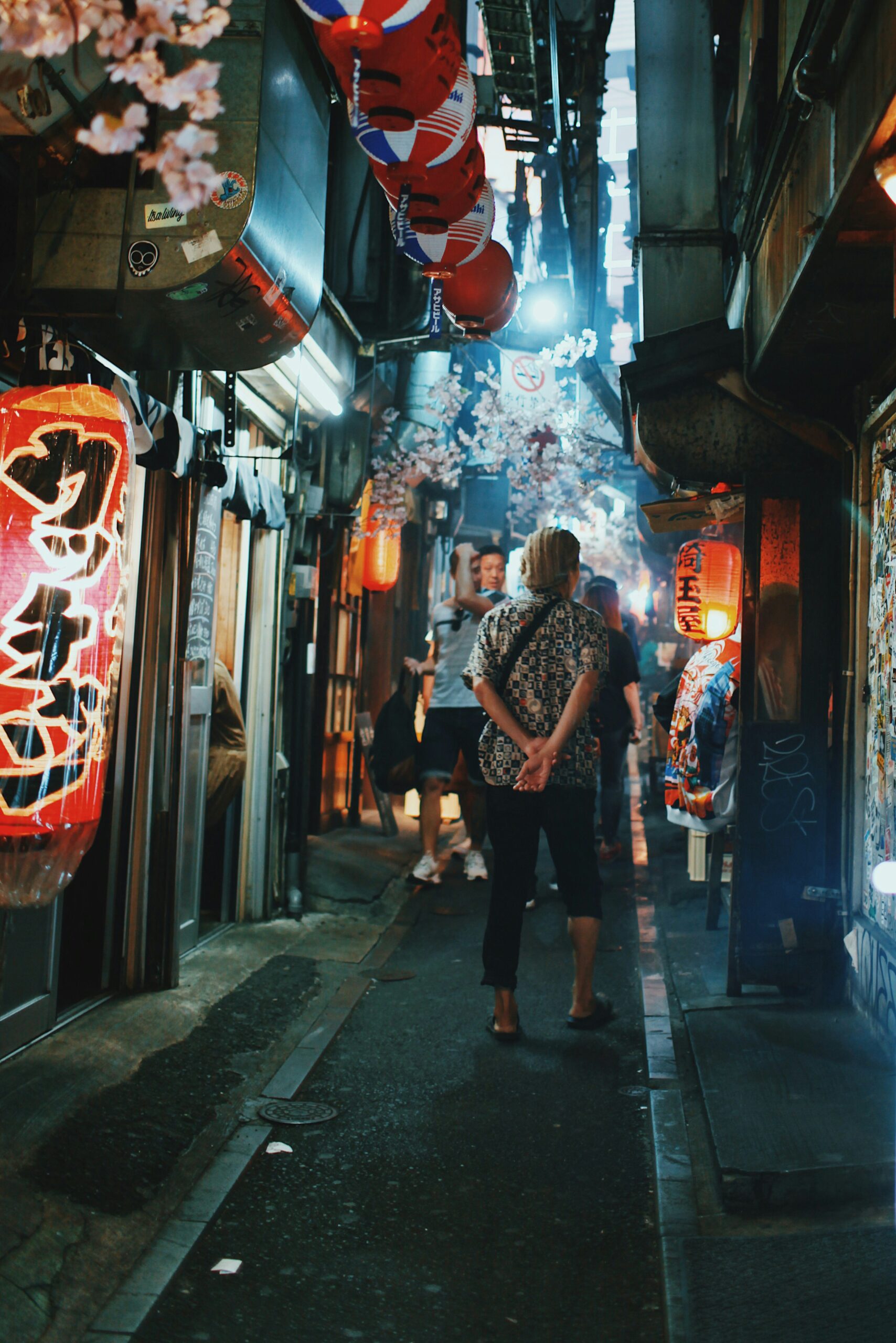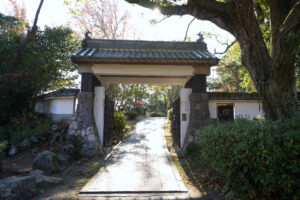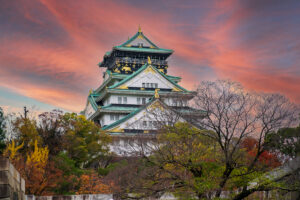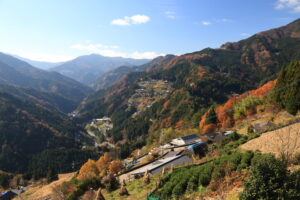Nestled in the bustling heart of Shinjuku, Omoide Yokocho stands as a testament to Tokyo’s rich culinary heritage. This narrow alleyway, often referred to as “Memory Lane,” offers a poignant glimpse into Japan’s post-war history, juxtaposed with the vibrant modernity that characterizes the city today. With its warm lights, tantalizing aromas, and the chatter of patrons sharing laughter over food, Omoide Yokocho is more than just a dining destination—it is an experience steeped in tradition and community.
Unveiling Shinjuku Omoide Yokocho’s Culinary Delights
Walking through Omoide Yokocho is akin to stepping into a culinary treasure chest filled with the authentic flavors of Japan. The alley is lined with tiny izakayas and food stalls, each offering a unique take on traditional dishes. Diners can find everything from skewered delights to homemade ramen, each prepared with care and skill. These eateries, many of which are family-owned, pride themselves on using time-honored recipes that have been passed down through generations, ensuring an intimate connection to the past.
The atmosphere is vibrant, with the sounds of sizzling skewers and the cheerful banter of patrons creating a symphony of culinary excitement. Visitors often find themselves drawn not just to the food, but to the sheer experience of dining in such a unique setting. The charm of Omoide Yokocho lies in its ability to transport diners to another time, where the focus is on the joy of sharing good food in the company of friends and strangers alike.
Offering a wide array of dishes, Omoide Yokocho caters to every palate. From savory yakitori (grilled chicken skewers) to comforting bowls of udon and soba noodles, the options are abundant and varied. The culinary delights here reflect the heart of Japanese cuisine—simple, fresh, and incredibly flavorful. Each bite tells a story, inviting patrons to savor not just the food, but the culture it represents.
As the evening approaches, the allure of Omoide Yokocho becomes even more pronounced. Locals and tourists alike flock to the narrow lanes, eager to unwind after a long day and indulge in flavorful dishes accompanied by refreshing drinks. The energy of the space intensifies, as laughter and clinking glasses fill the air, creating a warm and welcoming environment that encourages camaraderie among diners.
The culinary landscape of Omoide Yokocho is also a reflection of Japan’s seasonal changes. Many stalls update their menus to incorporate seasonal ingredients, allowing visitors to experience the best of what each season has to offer. Such attention to detail not only enhances the flavors of the dishes but also showcases the deep respect that Japanese cuisine holds for nature and its cycles.
In essence, Omoide Yokocho is a gastronomic haven that invites exploration and discovery. With each visit, one can uncover new flavors and experiences, making it a destination that is as exciting as it is comforting.
A Brief History of Omoide Yokocho’s Vibrant Atmosphere
Omoide Yokocho has a storied history that dates back to the post-World War II era. Originally a black market area, the alley started to evolve as the city began to rebuild itself. It quickly became a gathering spot for soldiers, laborers, and locals seeking affordable food and camaraderie. This rich and tumultuous history has shaped its identity and continues to resonate with patrons today.
In the years that followed, Omoide Yokocho transformed from a makeshift food market into a vibrant culinary destination. By the 1970s, as Japan’s economy boomed, the alley retained its charm and authenticity, becoming a beloved spot for both locals and visitors. The bustling stalls and izakayas served as a reminder of a simpler time, where people could come together over hearty meals in a cozy, communal atmosphere.
The narrow, winding lanes of Omoide Yokocho are lined with wooden structures that evoke nostalgia for the past. Many of the eateries have retained their traditional aesthetics, with paper lanterns casting a warm glow that draws in passersby. The atmosphere is steeped in memories, allowing visitors to feel a sense of connection to the history of the place.
Over the decades, Omoide Yokocho has held onto its identity amid the rapid modernization of Tokyo. Surrounded by towering skyscrapers and bustling streets, this hidden gem provides a stark contrast, offering a slice of history that feels almost suspended in time. The preservation of its original charm has been a collective effort of both the owners and the community, who recognize the importance of maintaining the unique character of the alley.
As the culinary landscape of Tokyo continues to evolve, Omoide Yokocho remains a steadfast symbol of tradition and resilience. Local chefs and stall owners take pride in their heritage, ensuring that the flavors of the past are not lost to the currents of modernity. This dedication not only preserves the history of Omoide Yokocho but also strengthens the community that surrounds it.
Today, Omoide Yokocho stands as a vibrant reminder of Tokyo’s rich history, drawing visitors not just for food, but for the stories interwoven into every dish served. Its evolution mirrors that of the city itself—a blend of tradition and modernity, where the past coexists with the present in a delightful culinary dance.
Navigating the Narrow Alleys: A Guide for Visitors
To truly appreciate the magic of Omoide Yokocho, navigating its narrow alleys can be both an adventure and a challenge. The alley stretches for just a few hundred meters, but within that distance lies an enticing array of eateries and bars, each boasting its own specialties. Visitors should take their time to explore each stall, as the experience is as much about the ambiance and interaction as it is about the food.
Upon entering Omoide Yokocho, the first thing to note is the layout. The alley is lined with approximately 20-30 stalls, each with limited seating—often just a few bar stools positioned against the counter. This intimate setting encourages conversation between patrons and chefs, adding a personal touch to the dining experience. It’s not uncommon to find diners sharing tables, fostering a sense of community that is integral to the izakaya culture.
For those who may feel overwhelmed by the myriad of options, a good strategy is to observe the crowd. Popular stalls are often bustling with activity, hinting at the quality of food being served. Additionally, many establishments will have their menus displayed outside, giving visitors a preview of what to expect inside. Don’t hesitate to ask locals or fellow travelers for recommendations—word of mouth is a powerful tool in discovering the best dishes.
The best time to visit Omoide Yokocho is in the evening when the atmosphere comes alive with the glow of lanterns and the sounds of laughter and clinking glasses. However, peak hours can lead to crowded conditions, and waiting for a seat can be expected during weekends or holidays. If possible, visiting during weekdays or early in the evening can provide a more relaxed experience.
When it comes to dining, visitors should come with an open mind and a willingness to try new foods. Many stalls specialize in specific dishes, so sampling a variety of offerings is highly encouraged. Pairing food with drinks, such as sake or beer, enhances the experience and allows for a deeper appreciation of the flavors.
Lastly, it’s essential to remember that Omoide Yokocho is not just about food; it’s about the experience of being part of a lively community. Engaging with the chefs, fellow diners, and the ambiance will leave an indelible mark on your visit, making Omoide Yokocho a memorable highlight of any trip to Shinjuku.
The Allure of Traditional Izakayas in Omoide Yokocho
At the heart of Omoide Yokocho’s culinary charm lie its traditional izakayas, each offering a unique interpretation of classic Japanese dishes. These informal pubs serve as social hubs, where locals and tourists alike gather to unwind and enjoy good food and drink. The izakayas in Omoide Yokocho are known for their warm hospitality, which is reflected in the friendly interactions between patrons and staff.
Many of the izakayas are family-owned, often run by generations of the same family. This legacy adds a personal touch to the dining experience, as chefs take pride in sharing their culinary expertise and stories with guests. The small stoves and grills used to prepare food create an intimate atmosphere where patrons can watch their meals being cooked right before their eyes, enhancing the connection between chef and diner.
The menu offerings at these izakayas are diverse, yet focused on traditional Japanese flavors. From grilled yakitori to sizzling okonomiyaki (savory pancakes), the dishes are prepared using time-honored techniques that capture the essence of Japanese cuisine. Each izakaya has its own specialties, often influenced by regional ingredients and family recipes, creating a delightful patchwork of flavors across the alley.
In addition to food, the izakayas of Omoide Yokocho also serve a variety of alcoholic beverages, including sake, shochu, and local beers. The pairing of these drinks with small plates of food embodies the essence of izakaya culture, where the focus is on relaxation and enjoyment rather than formal dining etiquette. Visitors are encouraged to experiment with different combinations, discovering new favorite flavors along the way.
The small size of the izakayas fosters a sense of community and connection among diners. It’s common to strike up conversations with fellow patrons, sharing recommendations and stories over a plate of food. This communal atmosphere is a key aspect of the Omoide Yokocho experience, making each visit not just a meal, but a memorable social occasion.
The allure of traditional izakayas in Omoide Yokocho lies in their ability to transport diners to a time when food was celebrated as a communal experience. As the night unfolds, the laughter, chatter, and clinking of glasses create a symphony of joy that resonates throughout the alley, inviting everyone to partake in the celebration of good food, good company, and a shared love for Japanese culture.
Signature Dishes: Must-Try Foods at Omoide Yokocho
Omoide Yokocho is a culinary paradise, boasting an array of signature dishes that highlight the richness of Japanese cuisine. Each stall has its own specialties, and visitors should be prepared to embark on a gastronomic adventure that showcases the best of what the alley has to offer.
One of the most iconic dishes to try is yakitori, grilled chicken skewers that come in various cuts and preparations. From tender thigh meat to juicy wings, each skewer is seasoned with a sprinkle of salt or brushed with a savory tare sauce. The smoky flavor from the grill elevates the dish, making it a must-try for any visitor. Pairing yakitori with a cold beer or sake enhances the experience, bringing out the flavors of both the food and drink.
Another popular dish found in Omoide Yokocho is the beloved ramen. Many stalls serve their own unique take on this classic noodle soup, with rich broths that range from savory tonkotsu (pork bone) to lighter shoyu (soy sauce) bases. Each bowl is typically garnished with fresh vegetables, soft-boiled eggs, and slices of chashu (braised pork), making for a satisfying and flavorful meal that warms the soul.
For those seeking a more adventurous bite, the okonomiyaki—a savory pancake filled with a variety of ingredients—is a must-try. Often cooked to order right in front of diners, these pancakes can be customized with toppings such as seafood, vegetables, and even cheese. The final touch is a drizzle of tangy sauce and a sprinkle of bonito flakes that dance atop the hot pancake, creating an enticing visual display.
Kushiyaki, a delightful assortment of grilled skewers that may include vegetables, seafood, and meat beyond chicken, also deserves a spot on the must-try list. Each skewer showcases different flavor profiles, allowing diners to sample a variety of tastes with each order. The communal nature of sharing skewers encourages diners to mix and match, making it a fun dining experience.
No meal in Omoide Yokocho would be complete without indulging in some izakaya-style appetizers such as edamame, agedashi tofu (deep-fried tofu), and various pickled vegetables. These small plates complement the main dishes beautifully and allow for a well-rounded meal that celebrates the diverse flavors of Japanese cuisine.
Overall, the signature dishes of Omoide Yokocho are an invitation to explore the depth and richness of Japanese culinary traditions. With each bite, diners are not only savoring delicious food but also participating in a cultural experience that brings together the flavors of the past and the excitement of the present.
The Impact of Local Ingredients on Culinary Experiences
The culinary landscape of Omoide Yokocho is deeply rooted in the use of local ingredients, which play a crucial role in shaping the flavors and experiences of the dishes served. Many of the izakayas source their ingredients from nearby markets, emphasizing freshness and seasonal relevance. This commitment to using local produce enhances the quality of the food and supports the surrounding community.
Seasonality is a fundamental aspect of Japanese cuisine, and Omoide Yokocho embodies this principle beautifully. Different times of the year bring a rotation of ingredients that reflect the bounty of Japan’s rich agricultural landscape. In the spring, for instance, diners can enjoy delicate sakura shrimp and fresh bamboo shoots, while summer might introduce juicy tomatoes and sweet corn. This seasonal approach not only enhances the flavors but also fosters a connection between the food and the natural environment.
The use of regional specialties is also prevalent in Omoide Yokocho, where many izakayas incorporate local sauces, marinades, and condiments into their dishes. From artisanal soy sauces to unique miso pastes, these ingredients add depth and character to the food, showcasing the distinct culinary culture of different Japanese regions. Diners are often encouraged to ask chefs about their ingredients, creating an opportunity for interaction and learning.
Moreover, the emphasis on local ingredients extends to beverages as well. Many izakayas offer a selection of locally brewed sake and shochu, allowing patrons to pair their meals with drinks that reflect the region’s traditions. This commitment to locality not only enhances the dining experience but also cultivates a stronger sense of community and pride among the chefs and their patrons.
The impact of local ingredients on culinary experiences in Omoide Yokocho goes beyond mere flavor; it fosters a deeper understanding of Japanese culinary philosophy. The practices of sourcing fresh, seasonal ingredients echo the values of sustainability and respect for nature that are intrinsic to Japanese culture. As diners indulge in their meals, they are also participating in a larger narrative about food, community, and the environment.
In essence, Omoide Yokocho is a celebration of local ingredients that elevate the culinary experience to new heights. By prioritizing freshness and seasonality, the izakayas within the alley not only create memorable dishes but also honor the rich agricultural heritage of Japan. Each meal becomes a tribute to the land, its seasons, and the vibrant community that supports it.
Interviews with Chefs: Passion Behind the Stalls
To truly appreciate the culinary magic of Omoide Yokocho, one must delve into the stories of the chefs behind the stalls. Each chef brings a unique background and passion for their craft, contributing to the rich tapestry of flavors and experiences offered in the alley. Interviews with these culinary artisans reveal the dedication and love that goes into each dish they serve.
Many chefs in Omoide Yokocho have spent years honing their skills and perfecting their recipes, often starting their culinary journeys at a young age. For some, the path to becoming a chef was inspired by family traditions, with recipes passed down through generations. This personal connection to food imbues their dishes with an authenticity that resonates with diners, making each meal feel like a cherished memory.
The chefs express a deep-rooted passion for using quality ingredients, often sourcing them locally to ensure freshness and flavor. This commitment to quality extends to their cooking techniques, as they strive to maintain the integrity of traditional Japanese cuisine. Many chefs emphasize that cooking is not just about feeding people—it’s about creating a shared experience that brings joy and connection to the table.
In Omoide Yokocho, the relationship between chef and diner is particularly intimate. With limited seating, chefs often interact with their patrons, sharing stories about their culinary philosophy and the inspiration behind their dishes. This personal touch fosters a sense of community, where diners feel valued and connected to the culinary experience.
When asked about their favorite dishes to prepare, many chefs speak with pride about their signature offerings. Whether it’s a perfectly grilled yakitori skewer or a rich bowl of ramen, each dish is a reflection of their hard work and dedication. They often express joy in seeing the satisfaction on diners’ faces as they enjoy their meals, reinforcing their commitment to their craft.
Through these interviews, it becomes clear that the magic of Omoide Yokocho lies not just in the food itself, but in the stories and passion of the chefs who create it. Each stall is a labor of love, where culinary artisans pour their hearts into crafting dishes that evoke memories and foster connections. This dedication to the art of cooking is what makes Omoide Yokocho a truly special destination for food lovers.
Capturing the Nightlife: Omoide Yokocho After Dark
As the sun sets, Omoide Yokocho transforms into a lively hub of activity, showcasing Tokyo’s vibrant nightlife. The alleyway, illuminated by a warm glow from paper lanterns, becomes a gathering place for locals and tourists alike, all eager to unwind and indulge in the culinary delights that the izakayas have to offer. The atmosphere is electric, filled with laughter, chatter, and the enticing aroma of grilled delicacies wafting through the air.
Evening visits to Omoide Yokocho reveal a different side of the culinary experience. The hustle and bustle of the day gives way to a more relaxed atmosphere, where diners can immerse themselves in the joy of sharing food and drink with friends and acquaintances. The intimate setting of the stalls encourages conversations that flow easily, making it a perfect backdrop for socializing.
Many izakayas in Omoide Yokocho become crowded during the evening, as patrons gather around the counters to enjoy drinks and small plates. The lively energy is infectious, drawing in passersby who are eager to join in the fun. Visitors are often seen mingling with locals, sharing recommendations and enjoying the camaraderie that comes from a shared love of food and drink.
For those looking to experience Omoide Yokocho’s nightlife, the options are plentiful. Many stalls offer unique drink specials, featuring local beers, sake, and shochu. Pairing these beverages with a variety of small plates creates a festive atmosphere that beckons diners to sample as much as possible. This spirit of exploration is a hallmark of the izakaya experience, where sharing and tasting are encouraged.
As the night progresses, the alley continues to buzz with excitement. The convivial atmosphere encourages patrons to linger, savoring every moment as they enjoy their meals. Chefs often engage with diners, sharing stories and recommendations, which adds to the sense of community that defines Omoide Yokocho.
Capturing the nightlife of Omoide Yokocho is not just about the food; it’s about the experience of being part of a vibrant and welcoming community. The night brings together people from all walks of life, united by their love for good food and the joy of sharing it with others. This enchanting atmosphere makes Omoide Yokocho a must-visit destination for anyone seeking to experience the heart and soul of Tokyo’s culinary scene.
Cultural Significance: Food and Community in Shinjuku
Omoide Yokocho is more than just a culinary destination; it is a vital cultural space that embodies the








